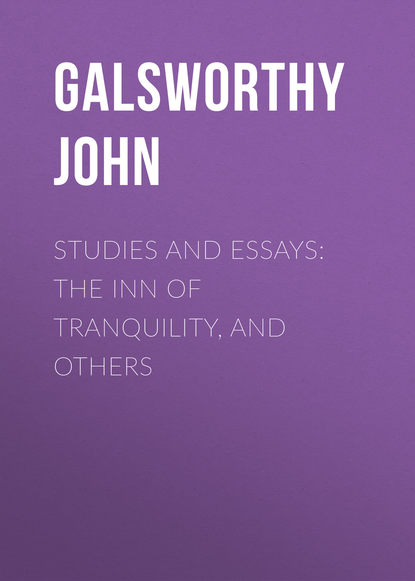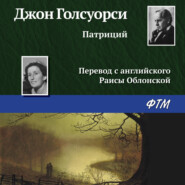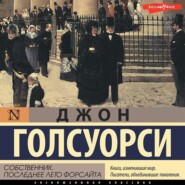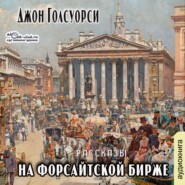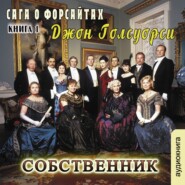По всем вопросам обращайтесь на: info@litportal.ru
(©) 2003-2024.
✖
Studies and Essays: The Inn of Tranquility, and Others
Настройки чтения
Размер шрифта
Высота строк
Поля
"I'm sorry."
"Easy job, his, you know. And even if his health does give out, his college pals will always find him some sort of sinecure. So jolly popular, old Willie!"
"And Alan? I haven't heard anything of him since his Peruvian thing came to grief. He married, didn't he?"
"Rather! One of the Burleys. Nice girl – heiress; lot of property in
Hampshire. He looks after it for her now."
"Doesn't do anything else, I suppose?"
"Keeps up his antiquarianism."
I had exhausted the members of his family.
Then, as though by eliciting the good fortunes of his brothers I had cast some slur upon himself, he said suddenly: "If the railway had come, as it ought to have, while I was out there, I should have done quite well with my fruit farm."
"Of course," I agreed; "it was bad luck. But after all, you're sure to get a job soon, and – so long as you can live up there with your aunt – you can afford to wait, and not bother."
"Yes," he murmured. And I got up.
"Well, it's been very jolly to hear about you all!"
He followed me out.
"Awfully glad, old man," he said, "to have seen you, and had this talk. I was feeling rather low. Waiting to know whether I get that job – it's not lively."
He came down the Club steps with me. By the door of my cab a loafer was standing; a tall tatterdemalion with a pale, bearded face. My distant relative fended him away, and leaning through the window, murmured: "Awful lot of these chaps about now!"
For the life of me I could not help looking at him very straight. But no flicker of apprehension crossed his face.
"Well, good-by again!" he said: "You've cheered me up a lot!"
I glanced back from my moving cab. Some monetary transaction was passing between him and the loafer, but, short-sighted as I am, I found it difficult to decide which of those tall, pale, bearded figures was giving the other one a penny. And by some strange freak an awful vision shot up before me – of myself, and my distant relative, and Claud, and Richard, and Willie, and Alan, all suddenly relying on ourselves. I took out my handkerchief to mop my brow; but a thought struck me, and I put it back. Was it possible for me, and my distant relatives, and their distant relatives, and so on to infinity of those who be longed to a class provided by birth with a certain position, raised by Providence on to a platform made up of money inherited, of interest, of education fitting us for certain privileged pursuits, of friends similarly endowed, of substantial homes, and substantial relatives of some sort or other, on whom we could fall back – was it possible for any of us ever to be in the position of having to rely absolutely on ourselves? For several minutes I pondered that question; and slowly I came to the conclusion that, short of crime, or that unlikely event, marooning, it was not possible. Never, never – try as we might – could any single one of us be quite in the position of one of those whose approaching pauperisation my distant relative had so vehemently deplored. We were already pauperised. If we served our country, we were pensioned… If we inherited land, it could not be taken from us. If we went into the Church, we were there for life, whether we were suitable or no. If we attempted the more hazardous occupations of the law, medicine, the arts, or business, there were always those homes, those relations, those friends of ours to fall back on, if we failed. No! We could never have to rely entirely on ourselves; we could never be pauperised more than we were already! And a light burst in on me. That explained why my distant relative felt so keenly. It bit him, for he saw, of course, how dreadful it would be for these poor people of the working classes when legislation had succeeded in placing them in the humiliating position in which we already were – the dreadful position of having something to depend on apart from our own exertions, some sort of security in our lives. I saw it now. It was his secret pride, gnawing at him all the time, that made him so rabid on the point. He was longing, doubtless, day and night, not to have had a father who had land, and had left a sister well enough off to keep him while he was waiting for his job. He must be feeling how horribly degrading was the position of Claud – inheriting that land; and of Richard, who, just because he had served in the Indian Civil Service, had got to live on a pension all the rest of his days; and of Willie, who was in danger at any moment, if his health – always delicate – gave out, of having a sinecure found for him by his college friends; and of Alan, whose educated charm had enabled him to marry an heiress and live by managing her estates. All, all sapped of go and foresight and perseverance by a cruel Providence! That was what he was really feeling, and concealing, be cause he was too well-bred to show his secret grief. And I felt suddenly quite warm toward him, now that I saw how he was suffering. I understood how bound he felt in honour to combat with all his force this attempt to place others in his own distressing situation. At the same time I was honest enough to confess to myself sitting there in the cab – that I did not personally share that pride of his, or feel that I was being rotted by my own position; I even felt some dim gratitude that if my powers gave out at any time, and I had not saved anything, I should still not be left destitute to face the prospect of a bleak and impoverished old age; and I could not help a weak pleasure in the thought that a certain relative security was being guaranteed to those people of the working classes who had never had it before. At the same moment I quite saw that to a prouder and stronger heart it must indeed be bitter to have to sit still under your own security, and even more bitter to have to watch that pauperising security coming closer and closer to others – for the generous soul is always more concerned for others than for himself. No doubt, I thought, if truth were known, my distant relative is consumed with longing to change places with that loafer who tried to open the door of my cab – for surely he must see, as I do, that that is just what he himself – having failed to stand the pressure of competition in his life – would be doing if it were not for the accident of his birth, which has so lamentably insured him against coming to that.
"Yes," I thought, "you have learnt something to-day; it does not do, you see, hastily to despise those distant relatives of yours, who talk about pauperising and molly-coddling the lower classes. No, no! One must look deeper than that! One must have generosity!"
And with that I stopped the cab and got out for I wanted a breath of air. 1911
THE BLACK GODMOTHER
Sitting out on the lawn at tea with our friend and his retriever, we had been discussing those massacres of the helpless which had of late occurred, and wondering that they should have been committed by the soldiery of so civilised a State, when, in a momentary pause of our astonishment, our friend, who had been listening in silence, crumpling the drooping soft ear of his dog, looked up and said, "The cause of atrocities is generally the violence of Fear. Panic's at the back of most crimes and follies."
Knowing that his philosophical statements were always the result of concrete instance, and that he would not tell us what that instance was if we asked him – such being his nature – we were careful not to agree.
He gave us a look out of those eyes of his, so like the eyes of a mild eagle, and said abruptly: "What do you say to this then?.. I was out in the dog-days last year with this fellow of mine, looking for Osmunda, and stayed some days in a village – never mind the name. Coming back one evening from my tramp, I saw some boys stoning a mealy-coloured dog. I went up and told the young devils to stop it. They only looked at me in the injured way boys do, and one of them called out, 'It's mad, guv'nor!' I told them to clear off, and they took to their heels. The dog followed me. It was a young, leggy, mild looking mongrel, cross – I should say – between a brown retriever and an Irish terrier. There was froth about its lips, and its eyes were watery; it looked indeed as if it might be in distemper. I was afraid of infection for this fellow of mine, and whenever it came too close shooed it away, till at last it slunk off altogether. Well, about nine o'clock, when I was settling down to write by the open window of my sitting-room – still daylight, and very quiet and warm – there began that most maddening sound, the barking of an unhappy dog. I could do nothing with that continual 'Yap yap!' going on, and it was too hot to shut the window; so I went out to see if I could stop it. The men were all at the pub, and the women just finished with their gossip; there was no sound at all but the continual barking of this dog, somewhere away out in the fields. I travelled by ear across three meadows, till I came on a hay-stack by a pool of water. There was the dog sure enough – the same mealy-coloured mongrel, tied to a stake, yapping, and making frantic little runs on a bit of rusty chain; whirling round and round the stake, then standing quite still, and shivering. I went up and spoke to it, but it backed into the hay-stack, and there it stayed shrinking away from me, with its tongue hanging out. It had been heavily struck by something on the head; the cheek was cut, one eye half-closed, and an ear badly swollen. I tried to get hold of it, but the poor thing was beside itself with fear. It snapped and flew round so that I had to give it up, and sit down with this fellow here beside me, to try and quiet it – a strange dog, you know, will generally form his estimate of you from the way it sees you treat another dog. I had to sit there quite half an hour before it would let me go up to it, pull the stake out, and lead it away. The poor beast, though it was so feeble from the blows it had received, was still half-frantic, and I didn't dare to touch it; and all the time I took good care that this fellow here didn't come too near. Then came the question what was to be done. There was no vet, of course, and I'd no place to put it except my sitting-room, which didn't belong to me. But, looking at its battered head, and its half-mad eyes, I thought: 'No trusting you with these bumpkins; you'll have to come in here for the night!' Well, I got it in, and heaped two or three of those hairy little red rugs landladies are so fond of, up in a corner; and got it on to them, and put down my bread and milk. But it wouldn't eat – its sense of proportion was all gone, fairly destroyed by terror. It lay there moaning, and every now and then it raised its head with a 'yap' of sheer fright, dreadful to hear, and bit the air, as if its enemies were on it again; and this fellow of mine lay in the opposite corner, with his head on his paw, watching it. I sat up for a long time with that poor beast, sick enough, and wondering how it had come to be stoned and kicked and battered into this state; and next day I made it my business to find out."
Our friend paused, scanned us a little angrily, and then went on: "It had made its first appearance, it seems, following a bicyclist. There are men, you know – save the mark – who, when their beasts get ill or too expensive, jump on their bicycles and take them for a quick run, taking care never to look behind them. When they get back home they say: 'Hallo! where's Fido?' Fido is nowhere, and there's an end! Well, this poor puppy gave up just as it got to our village; and, roaming shout in search of water, attached itself to a farm labourer. The man with excellent intentions – as he told me himself – tried to take hold of it, but too abruptly, so that it was startled, and snapped at him. Whereon he kicked it for a dangerous cur, and it went drifting back toward the village, and fell in with the boys coming home from school. It thought, no doubt, that they were going to kick it too, and nipped one of them who took it by the collar. Thereupon they hullabalooed and stoned it down the road to where I found them. Then I put in my little bit of torture, and drove it away, through fear of infection to my own dog. After that it seems to have fallen in with a man who told me: 'Well, you see, he came sneakin' round my house, with the children playin', and snapped at them when they went to stroke him, so that they came running in to their mother, an' she' called to me in a fine takin' about a mad dog. I ran out with a shovel and gave 'im one, and drove him out. I'm sorry if he wasn't mad, he looked it right enough; you can't be too careful with strange dogs.' Its next acquaintance was an old stone-breaker, a very decent sort. 'Well! you see,' the old man explained to me, 'the dog came smellin' round my stones, an' it wouldn' come near, an' it wouldn' go away; it was all froth and blood about the jaw, and its eyes glared green at me. I thought to meself, bein' the dog-days – I don't like the look o' you, you look funny! So I took a stone, an' got it here, just on the ear; an' it fell over. And I thought to meself: Well, you've got to finish it, or it'll go bitin' somebody, for sure! But when I come to it with my hammer, the dog it got up – an' you know how it is when there's somethin' you've 'alf killed, and you feel sorry, and yet you feel you must finish it, an' you hit at it blind, you hit at it agen an' agen. The poor thing, it wriggled and snapped, an' I was terrified it'd bite me, an' some'ow it got away."' Again our friend paused, and this time we dared not look at him.
"The next hospitality it was shown," he went on presently, "was by a farmer, who, seeing it all bloody, drove it off, thinking it had been digging up a lamb that he'd just buried. The poor homeless beast came sneaking back, so he told his men to get rid of it. Well, they got hold of it somehow – there was a hole in its neck that looked as if they'd used a pitchfork – and, mortally afraid of its biting them, but not liking, as they told me, to drown it, for fear the owner might come on them, they got a stake and a chain, and fastened it up, and left it in the water by the hay-stack where I found it. I had some conversation with that farmer. 'That's right,' he said, 'but who was to know? I couldn't have my sheep worried. The brute had blood on his muzzle. These curs do a lot of harm when they've once been blooded. You can't run risks."' Our friend cut viciously at a dandelion with his stick. "Run risks!" he broke out suddenly: "That was it from beginning to end of that poor beast's sufferings, fear! From that fellow on the bicycle, afraid of the worry and expense, as soon as it showed signs of distemper, to myself and the man with the pitch fork – not one of us, I daresay, would have gone out of our way to do it – a harm. But we felt fear, and so by the law of self-preservation, or what ever you like – it all began, till there the poor thing was, with a battered head and a hole in its neck, ravenous with hunger, and too distraught even to lap my bread and milk. Yes, and there's something uncanny about a suffering animal – we sat watching it, and again we were afraid, looking at its eyes and the way it bit the air. Fear! It's the black godmother of all damnable things!"
Our friend bent down, crumpling and crumpling at his dog's ears. We, too, gazed at the ground, thinking of, that poor lost puppy, and the horrible inevitability of all that happens, seeing men are what they are; thinking of all the foul doings in the world, whose black godmother is Fear.
"And what became of the poor dog?" one of us asked at last.
"When," said our friend slowly, "I'd had my fill of watching, I covered it with a rug, took this fellow away with me, and went to bed. There was nothing else to do. At dawn I was awakened by three dreadful cries – not like a dog's at all. I hurried down. There was the poor beast – wriggled out from under the rug-stretched on its side, dead. This fellow of mine had followed me in, and he went and sat down by the body. When I spoke to him he just looked round, and wagged his tail along the ground, but would not come away; and there he sat till it was buried, very interested, but not sorry at all."
Our friend was silent, looking angrily at something in the distance.
And we, too, were silent, seeing in spirit that vigil of early morning: The thin, lifeless, sandy-coloured body, stretched on those red mats; and this black creature – now lying at our feet – propped on its haunches like the dog in "The Death of Procris," patient, curious, ungrieved, staring down at it with his bright, interested eyes. 1912.





